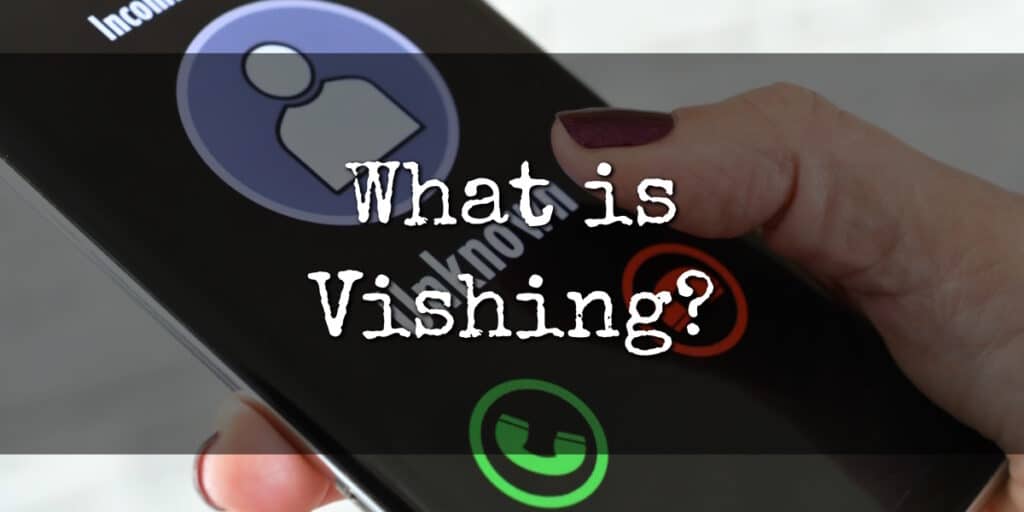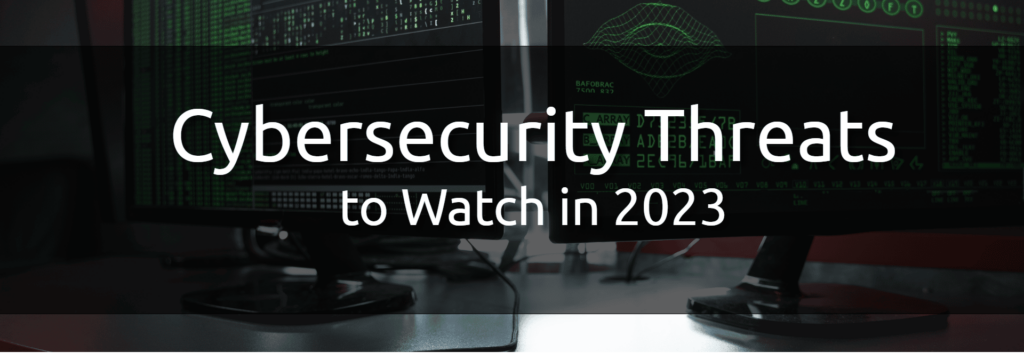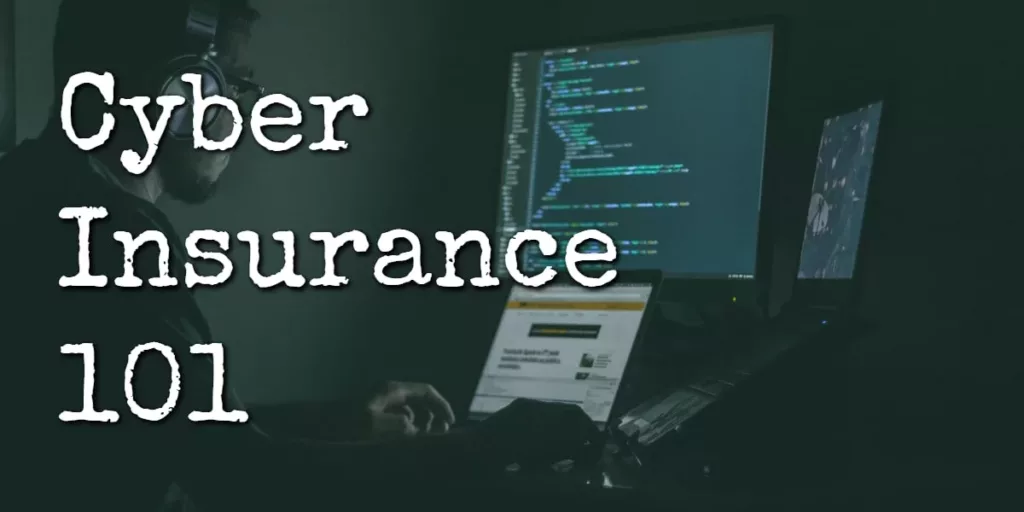In today’s increasingly digital world, where scammers and hackers are constantly finding new ways to exploit unsuspecting individuals and businesses, one threat that has been gaining prominence is vishing, also known as voice phishing.
Vishing attacks aim to steal personal information and gain unauthorized access to sensitive accounts, such as your bank account. It is crucial to stay informed and take proactive steps to protect yourself from these malicious schemes.
Let’s explore vishing, its connection to phishing attacks, and effective strategies to enhance your security awareness.
On This Page:
What is Vishing?
Vishing, also known as voice phishing, is a type of cybercrime where an attacker attempts to trick victims into sharing personal or financial information over the phone. This technique is typically used to steal credit card numbers or other information useful in identity theft schemes. Unlike traditional phishing, which uses emails, or smishing, which uses text messages, vishing leverages phone calls.
As scammers innovate to exploit individuals, vishing has become a significant concern in the digital age. Awareness of vishing tactics and remaining vigilant are crucial to avoid falling prey to a vishing scam.
The Evolution of Vishing

Just as technology has evolved over the years, so too has vishing. Initially, vishing attacks were primitive and easily detectable, often characterized by poorly executed scripts read by unconvincing automated voices. However, as scammers have become more sophisticated, vishing attacks have evolved into highly targeted and convincing endeavors.
Modern vishers conduct extensive planning and research, gathering victim information from various sources like social media platforms or data breaches, lending legitimacy to their calls.
Vishers also employ advanced voice manipulation techniques to mimic trusted individuals or organizations. Using voice-changing software or professional voice actors, they convincingly impersonate entities like bank representatives or government officials, further complicating vishing detection.
How Vishing Works
Vishing attacks typically follow a carefully crafted script, designed to deceive the victim into believing they are interacting with a trustworthy organization. The attacker may pose as a representative from a bank, a government agency, or even a trusted service provider. By creating a sense of urgency or invoking a potential threat, the attacker attempts to manipulate the victim into providing personal information or performing certain actions, such as transferring funds or installing malicious software.
Consider this scenario: you receive a call from someone claiming to be from your bank’s fraud department. They inform you that there has been suspicious activity on your account and that your funds are at risk. To resolve the issue, they request your account details and ask you to confirm your identity by providing sensitive information such as your social security number or login credentials. Unbeknownst to you, the person on the other end is a skilled visher who is attempting to gain unauthorized access to your accounts.
Vishers may create a sense of urgency by claiming that immediate action is required to prevent financial loss or legal consequences. This urgency can cloud judgment and lead individuals to disclose confidential information without thoroughly verifying the legitimacy of the call.
To protect yourself from vishing attacks, it is essential to be cautious when receiving unsolicited calls asking for personal information. Always verify the identity of the caller by independently contacting the organization they claim to represent. Additionally, refrain from sharing sensitive information over the phone unless you are certain of the caller’s legitimacy.
The Threat of Vishing
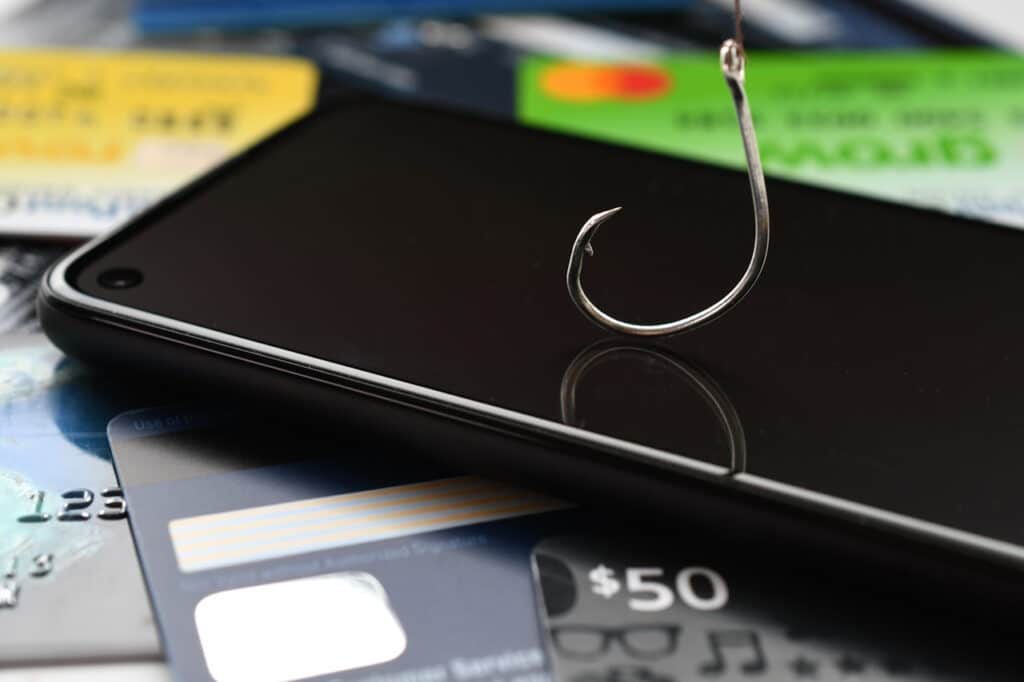
Vishing, a combination of “voice” and “phishing,” is a form of cyber attack that has become increasingly prevalent in our digitally connected world. It involves fraudulent phone calls, often disguised as legitimate entities, with the intention of deceiving individuals into revealing sensitive personal or financial information. This type of attack targets both individuals and businesses worldwide, posing a significant threat to our security.
The Impact of Vishing on Individuals and Businesses
The impact of vishing attacks can be devastating, both financially and emotionally, for individuals and businesses alike. When individuals fall victim to vishing scams, they often face the daunting consequences of identity theft, drained bank accounts, damaged credit scores, and a constant fear of further exploitation.
For businesses, the consequences of vishing attacks can be even more severe. Apart from the potential financial losses resulting from fraudulent transactions or stolen funds, companies may also face legal implications and regulatory fines if customer data is compromised. Moreover, the trust and confidence of customers, which are essential for any successful business, can be shattered as a result of a vishing attack. Rebuilding that trust can be a long and arduous process, often requiring significant investments in cybersecurity measures and public relations efforts.
Furthermore, the damage to a company’s reputation and brand value cannot be underestimated. In today’s interconnected world, news spreads rapidly, and the revelation of a vishing attack can tarnish a company’s image, leading to a loss of customers and potential business opportunities. The impact on employees’ morale and productivity should also be considered, as they may feel a sense of betrayal and insecurity following such an incident.
It is crucial for individuals and businesses to stay vigilant and educate themselves about the risks associated with vishing attacks. Implementing strong security measures, such as multi-factor authentication and employee training programs, can significantly reduce the chances of falling victim to these scams. By staying informed and taking proactive steps, we can mitigate the threat of vishing and protect ourselves from its detrimental effects.
Identifying a Vishing Attack

Common Characteristics of Vishing Calls
While vishing scams can vary in their execution, there are some common characteristics to watch out for. These include:
- Callers claiming to be from legitimate organizations but unable to provide proper identification.
- Pressure tactics, with scammers creating a sense of urgency or fear to manipulate victims into taking immediate action.
- Requests for confidential information such as social security numbers, credit card details, or login credentials.
- Automated voices or poor call quality, indicating a potentially fraudulent call.
Red Flags to Watch Out For
Alongside the common characteristics, there are certain red flags that should trigger caution and prompt you to be skeptical of any incoming calls:
- Unexpected calls or messages requesting sensitive information.
- Requests for payment via unconventional methods such as gift cards or cryptocurrency.
- Caller ID spoofing, where the attacker disguises their true identity by altering the displayed phone number.
- Offers that sound too good to be true, such as winning a prize or a lottery you don’t remember entering.
How to Prevent Vishing Attacks
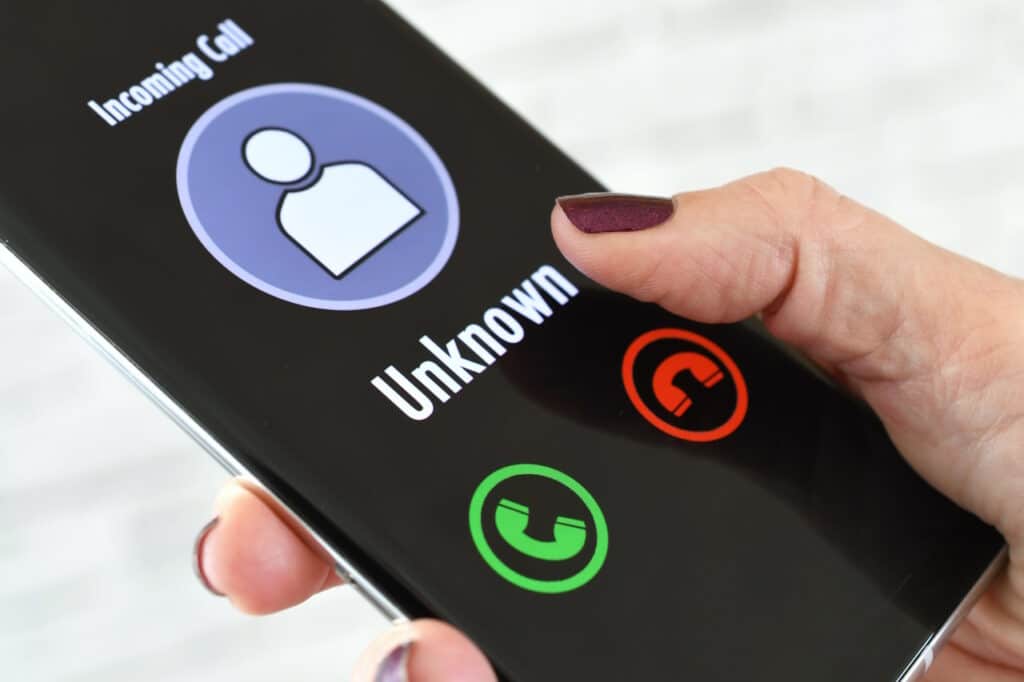
Practical Steps to Avoid Falling Victim
To protect yourself from vishing attacks, it is crucial to be proactive and maintain a high level of security awareness.
- Practice skepticism: Be cautious when receiving unsolicited calls or text messages asking for personal information. Remember, reputable organizations will never ask for sensitive details in this manner.
- Verify the caller’s identity: If you receive a call from someone claiming to be from a legitimate organization, hang up and independently verify their contact information. Use official phone numbers obtained from reliable sources, such as the organization’s website or official documents.
- Educate yourself and your employees: Participate in security awareness training to understand common tactics used by scammers. By staying informed, you can better protect your personal and professional information.
- Utilize technical support wisely: If you encounter technical issues with your computer or phone, contact reputable technical support services directly. Avoid sharing remote computer access with unknown individuals claiming to provide assistance.
Tools and Technology to Combat Vishing
Fortunately, technological advancements have led to the development of tools and services to combat vishing:
- Call-blocking applications and services can help filter out unwanted calls and potential vishing attempts.
- Voice-recognition technology and artificial intelligence-based algorithms can help identify and flag potential fraudulent calls.
- Improved phone network security measures, such as call-authentication protocols, can verify the origin of incoming calls to reduce the risk of caller ID spoofing.
Reporting a Vishing Attack
Who to Contact If You’ve Been Targeted
If you believe you have been targeted by a vishing attack or have received suspicious calls or messages, take the following steps:
- Contact your local police department and file a report. Provide them with all relevant details to assist in their investigation.
- Report the incident to the Federal Trade Commission (FTC) using their online complaint assistant.
- Notify the organization: If someone claiming to be from a financial institution or government agency has contacted you, reach out to the respective organization to report the incident. They can guide you on the necessary steps to protect your accounts and personal information.
The Role of Law Enforcement in Vishing Cases
Law enforcement agencies play a crucial role in combating vishing by investigating reported incidents, coordinating with other agencies, and sharing information to apprehend and prosecute the perpetrators. Their efforts are instrumental in bringing vishing scammers to justice and preventing future attacks.
Conclusion
As vishing attacks continue to pose a significant threat in our digital age, it is crucial to remain vigilant and take necessary precautions. By being aware of phishing attacks, recognizing vishing tactics, and implementing security awareness training, you can better protect yourself and your personal information from falling into the wrong hands.
Remember, your security is a priority, and staying informed is the first step toward a safer online experience.
Frequently Asked Questions
How does vishing work?
A vishing attack usually begins with an automated phone call or voice mail that seems to be from a reputable organization. The message might say there’s an issue with your account or that it’s been compromised, urging you to act immediately. The goal is to create a sense of urgency, compelling you to share your personal or financial details to resolve the supposed problem.
What should I do if I suspect a vishing attempt?
If you suspect you’ve received a vishing call, hang up immediately. Don’t provide any personal or financial information. Contact the organization that the caller claimed to represent, using the official contact information found on their website or your account statements. Report the incident to the appropriate authorities.
What should I do if I’ve become a victim of vishing?
If you’ve unintentionally shared personal or financial information during a vishing call, contact your bank or credit card company immediately to report potential fraud. Also, report the incident to your local law enforcement and to the Federal Trade Commission in the US. For other countries, report it to your local cybercrime reporting center.
How are vishing and phishing different?
Phishing refers to fraudulent attempts to steal personal information via email or fraudulent websites, while vishing specifically refers to these attempts conducted over the phone or voicemail. Both rely on similar tactics of impersonating trusted organizations and creating a sense of urgency to trick victims into revealing sensitive information.
